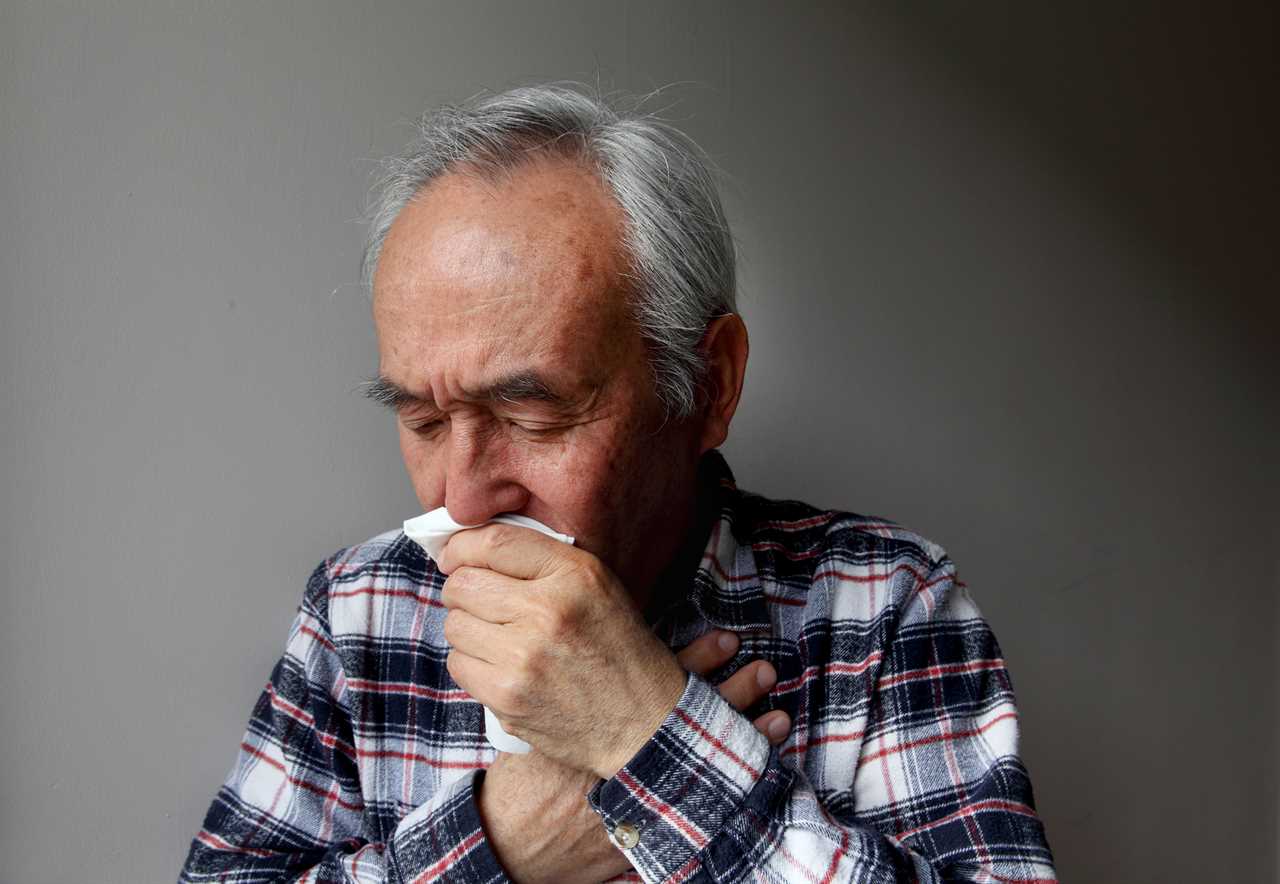A COUGH is not necessarily anything to worry about.
But there are two signs related to deadly cancer that men you should go to your GP for a check-up.

Some coughs are more than just a little tickle. When is it serious enough to see a GP?
Coughing is a symptom of lung cancer, the second deadliest form of the disease.
Around 47,000 people are diagnosed with the condition every year in the UK, and 34,700 people die.
In England, it is the fifth biggest cause of death overall.
The NHS says there are “usually no signs or symptoms in the early stages”.
However, once it starts to cause problems, a cough is one of them.
1. Persistent
If your cough is persistent you should see your GP.
The NHS defines persistent as lasting more than two to three weeks.
There are many causes of a cough – if yours won’t go away, it doesn’t mean you have cancer.
A “long-standing cough that gets worse” is also listed as a lung cancer symptom.
2. Blood
Coughing up blood is never normally a good sign – it could be a symptom of a chest infection or pneumonia.
The NHS says you should call 111 or get an urgent GP appointment if you’ve coughed up a few small spots, flecks or streaks of blood, or noticed blood in your phlegm or handkerchief.
Call 999 or go to A&E if it’s more than just a few spots, are struggling to breathe, or have a fast heartbeat and pain in your chest.
These could be signs of a blood clot in the lungs (pulmonary embolism).
But bloodied coughing can warn of lung cancer.
Other warning signs
Alongside a persistent cough and coughing up blood, you should see your GP if you have these symptoms:
- Chest infections that keep coming back
- An ache or pain when breathing or coughing
- Persistent breathlessness
- Persistent tiredness or lack of energy
- Loss of appetite
- Unexplained weight loss
It comes as the NHS launches a major awareness campaign to boost early lung cancer diagnoses.
The Help Us Help You campaign targets those most at risk, including over-60s and people from working-class backgrounds who are often more reluctant to visit their GP.
Other risk factors include smoking – although not all lung cancer cases are in smokers – and exposure to some chemicals over time.
Professor Peter Johnson, national clinical director for cancer, said: “For lung cancer, we have not seen referrals bounce back at the same rate as other cancers.
“It is vital that people stay alert against suspected lung cancer symptoms, so if you have a continuous cough or breathlessness, don’t ignore or assume it’s something else.
“Please visit your GP and get it checked out – it probably won’t be cancer but catching it early can help save lives.”
Health Secretary Steve Barclay said: “We know that the earlier you catch cancer, the better the chances of survival.
“I want to thank all those that continue to be involved in this lifesaving campaign, which aims to increase the number of cancer patients diagnosed at earlier stages from half to three-quarters by 2028.
“If you have any of the key symptoms set out by the NHS, I urge you to see your GP without delay to get checked out – early diagnosis is absolutely vital to beat this disease.”






